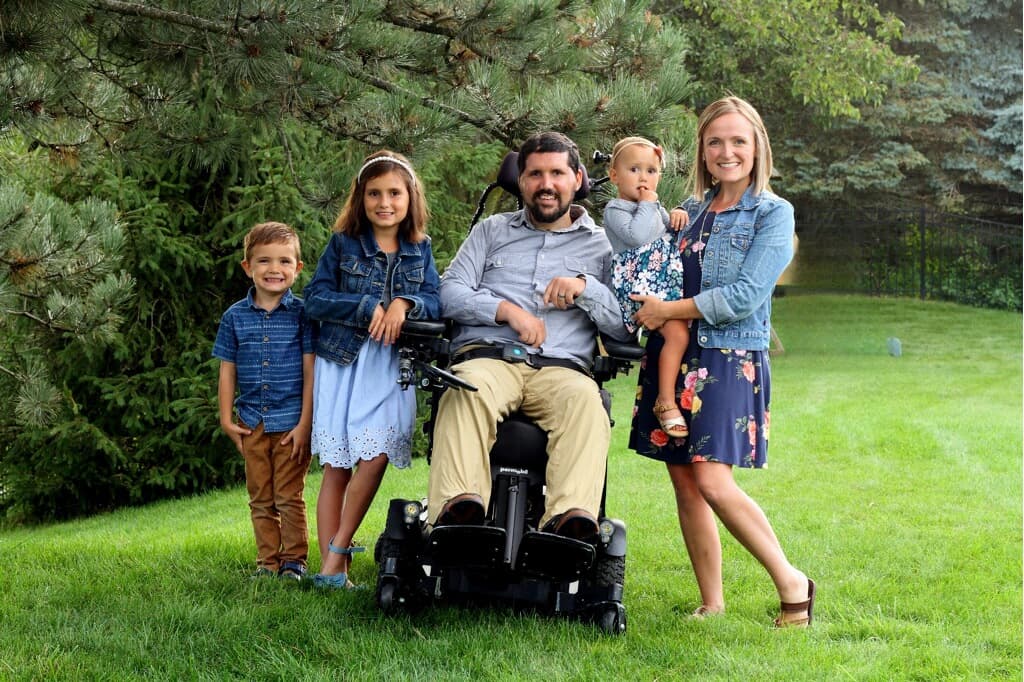It’s a new year. The calendars have been swapped. 2021 is here. Perhaps more importantly for most of the world, 2020 is gone.
Here’s the thing, though. The only things that operate on the calendar year are humans. For that matter, humans can’t even agree on which calendar to use. Gregorian? Lunar? Mayan? The list goes on, but what I’m trying to say is this:
January 1st is not a reset button
Several people asked me the last week of 2020 if I was making any new year’s resolutions. In the past, I would have probably made up a list just to fit in with the cool kids, but this year I simply directed their attention to a little sign we have on our wall. On the sign is written Lamentations 3:22-23.
After a year like 2020, I think it’s fair to say we could all use a fresh dose of hope. 2020 forced the world to acknowledge the fact that every day in this fragile world is haunted by the shadow of the unknown. But still it’s easy to put all our eggs in the basket of 2021. Why?
Humans are wired for hope
I don’t mean that wishy-washy maybe stuff. “I hope it doesn’t rain” is a desire for the future based on an uncertain outcome. No, I’m talking about a confident expectation that’s grounded in moral certainty. When I say humans are wired for hope, I mean God planted in us a remarkable ability to look forward to what we can’t see.
So when COVID-19 burst onto the scene, everybody started looking forward to a future when it would be eradicated like any other preventable disease. As 2020 drew to an end and a vaccine was in sight, the rallying cry became “2021 is the year the virus will end.”
When George Floyd was killed and racial tensions boiled over into months of riots, people looked forward to a future with no racism, and pinned their hopes on electing a less divisive and more “woke” president. The rallying cry became “2021 is the year racial harmony will begin in America.”
I shy away from politics on our blog, and I won’t make this post an exception. Neither am I any sort of medical authority, so I can’t speak to the efficacy of the vaccine or what measures ought to be taken to stop the spread of the virus beyond what I am told.
But I do know this: the purpose of the Lord will stand. And boy am I glad He isn’t confined to human calendars.
God’s mercies are new every morning
Scroll back up to that verse at the beginning. The steadfast love of the Lord never ceases. His mercies never come to an end. They are new every morning. Great is His faithfulness.
In Him, every day – no, every moment is a fresh start. That doesn’t mean all your troubles will vanish every morning. I’ve said it before on this blog, but it bears repeating: God is not a genie who exists for the sole purpose of making our lives comfortable.
Lamentations 3:22-23 does have two important implications, however.
The context of this passage gives us even greater insight into the riches of its truth. Lamentations is a book of laments composed for the city of Jerusalem when it was destroyed by the Babylonians. In this chapter the author (the prophet Jeremiah) is using his own suffering and despair to describe the suffering and despair of Jerusalem. The first 20 verses describe the depths of his despair, culminating in verses 17-20:
2020 much? This hopeless despair resonates with many of us if we’re honest. Ruined plans, lost jobs, missed opportunities, deaths of the ones we love. But praise God He doesn’t leave it there. The next verse turns a corner, bringing us from a pit of hopelessness to a pinnacle of objective hope.
Hope is objective
It’s worth noting here that true and lasting hope isn’t dependent on circumstance. Rather, objective hope transcends everything this uncertain life can throw our way. Let me Illustrate.
I went to China for a few summers in high school. Public transportation in Chinese cities feels like an action movie when you’re a teenage boy looking for adventure. At least until you fall on your face. I quickly learned the hard way that the handrails in those buses aren’t just for children and the elderly. As soon as people got on the bus, the first thing they did was grab onto something stable. Why? Because unless you held onto something that didn’t move, there was no telling where you’d end up once the road got tricky.
For the same reason, Jeremiah based his hope solely on the unshakeable truth of God’s character. Read through Lamentations 3 yourself and you’ll see that circumstances were horrible. Jeremiah even blamed God for much of them (and to a certain degree he wasn’t off base in doing so, as God was using terrible circumstances to bring proud and wandering Jerusalem down to its knees and into His arms).
Up to this point in the text, Jeremiah’s focus was on his uncontrollable circumstances. All he could see was his city being burned, his neighbors’ homes being ransacked, the faces of his captors while they dragged him and his people away. Hopeless despair was all he had to offer.
Until he remembered God’s character. The truths about God that Jeremiah brought to light here — namely His steadfastness, faithfulness and unending mercy — are what gave him hope. Not hope for changed circumstances, not hope for a better self, but hope in the unchanging Rock who weathers every storm.
.

No comment yet, add your voice below!